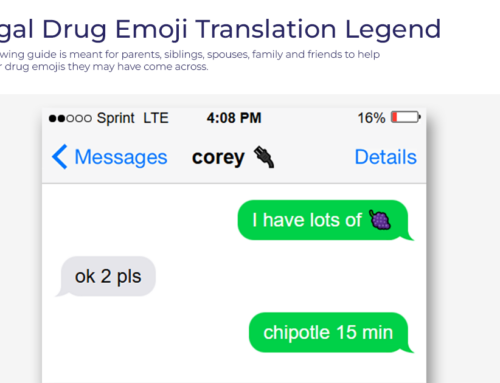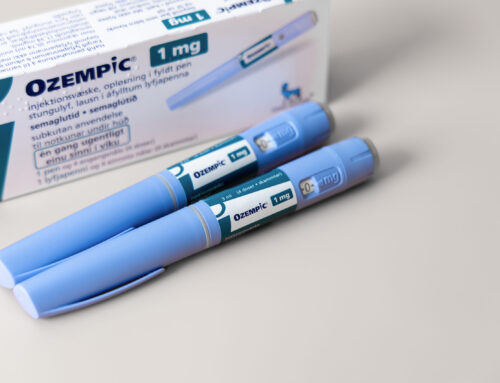Insomnia.
The dreaded enemy of the peaceful, restful sleep we all need to function and be healthy. More Americans than ever before are facing sleep disorders like insomnia. As a result, more are turning to prescription drugs to help them get some shut-eye. But how addictive are prescription sleep medicines like Ambien and Lunesta?
This Achieve Wellness and Recovery article looks at the risk of addiction and other complications from using controlled sleep medicines like Ambien and Lunesta.
Are Ambien and Lunesta Effective for Sleeplessness?
Are Ambien (zolpidem) and Lunesta (Eszopiclone) effective in helping you fall and stay asleep? Yes, they are. And the truth is the occasional use of these medications by people with no personal or family history of addiction is fairly safe.
The problem is that many people use these medications on a regular basis, if not every night. These are controlled substances. That means they have enough potential for addiction that the FDA pays extra attention to how they are prescribed.
It also means physicians (should) be using great discretion in prescribing them. They should never be the first line of defense. While they are effective — the risk of addiction or at minimum dependence, is very high. If you are already taking Ambien or Lunesta every night, then you know this all too well.
Side effects and risks of using Ambien and Lunesta include:
- Potential for abuse and dependency
- Unusual, out-of-character behavior
- Memory loss/impairment
- Binge eating
Are Lunesta and Ambien Addictive?
The short answer is YES. Medications like Ambien, Lunesta, and Sonata are in a class of drugs called non-benzodiazepine sedative-hypnotics. That “non-benzodiazepine” part can lead some people to believe that these drugs are somehow inherently safer than benzodiazepines like Xanax and Klonopin.
That is not necessarily the case, however. The facts are this: All of the medicines above are controlled substances. Drugs only become controlled substances when they have substantial potential for abuse and addiction. It’s that simple really.
If a medication is controlled you will need a photo ID to pick it up from the pharmacy and there will be strict limits on when and how often they can be refilled. This is for your safety and protection. But even these limits cannot prevent you from becoming addicted to Ambien, Lunesta, or another controlled sleep med.
That does not necessarily mean that you are addicted to Ambien or that you will become addicted. What we do know is that if you use any of these narcotic sleep aids regularly, you will become dependent on them.
What’s the Difference Between Being Addicted to Ambien or Dependent On It?
Good question! This is an important distinction that far too many people are incapable of making. It’s not their fault of course. Doctors and patients alike could benefit from more education on the risks of substance abuse and the role that dependency can play in addiction or other problems.
Understand the difference between addiction and dependence:
Addiction to Sleep Medication
Addiction is a behavioral condition. It is an obsession and compulsion originating in the mind. The seemingly insatiable desire to use a substance (in this case). Specifically, addiction is when a person is driven to a certain behavior repeatedly (like using a substance) even when there are negative consequences. Addiction involves the brain’s reward pathways.
Normally this reward system is intended to reinforce healthy and necessary behaviors (eating, sleep, sex, etc.) In addition, this system is ‘hijacked’ by another substance or behavior. That substance, such as a narcotic sleep aid, becomes more important than it should be.
A person will take it for reasons other than sleep. They may force themselves to stay awake when taking Ambien, for example. A person addicted to sleep meds will often use more than prescribed and run out of their prescription early. They may combine it with other drugs, like alcohol or marijuana to amplify its effects.
- A person may be addicted to something without being physically dependent on it.
Dependence on Sleep Medication
Dependence is a physical, chemical condition in the body. When a person uses narcotic sleep medications regularly (daily or almost daily) for a period of weeks or months — they develop a dependency on Ambien (or Lunesta, Sonata, etc.). The body begins to adapt to the presence of the drug and it alters brain and body chemistry.
When the drug is suddenly removed, the user experiences withdrawal effects. So, effectively after a period of regular use an Ambien or Lunesta user often finds that they cannot sleep at all without the drug. This is dependence. A person may be dependent without being addicted (i.e. misusing the drug or taking it compulsively to get high and so on)
This rebound reaction is caused because the body is out of balance and no longer making enough of certain chemicals, in this case, the primary neurotransmitter involved is called Gamma-Aminobutyric Acid, or GABA for short. This chemical helps calm us down and suppresses nerve activity. GABA is essential for sleep.
- A person may be dependent on a substance without being addicted to it — however, dependency is often still a problem.
Treatment for Sleep Aid Addiction
If you’re struggling with getting a good night’s rest, the best place to start isn’t necessarily reaching for a pill bottle. Especially if it contains a controlled substance. Even if you’ve never had a history of addiction or substance abuse, that doesn’t mean there’s no risk in the regular use of a narcotic medication.
If you or someone you care about is addicted to or dependent on a narcotic sleep aid like Ambien or Lunesta, substance use disorder treatment can help. Depending on how much of the drug they are taking, a physician may decide to taper or titrate (lowering their dose steadily over time) for safety and comfort. This may be done in an inpatient detox setting or while the patient is in PHP treatment or at home.
How addiction to sleep medications is treated:
- Tapering/titration or medical detox
- Partial Hospitalization Program for addiction
- Intensive Outpatient Program for addiction
- Outpatient treatment and counseling.
Why Can’t I Sleep? What Do I Do?
The truth is that discovering WHY you don’t sleep well is a much wiser approach than simply throwing pills at the problem. That’s especially true if you have chronic insomnia. The reality is that there are many other ways to resolve your sleep troubles. Unfortunately in America, we have been conditioned to look for a pill or potion as the answer to even the slightest discomfort or inconvenience — and we have paid a heavy price for it.
If you struggle with sleep, before you go to your doctor and ask for a prescription, consider seeing a sleep specialist instead. Taking on an exercise routine, using relaxation techniques like Transcendental Meditation or yoga. Over-the-counter or herbal supplements and other solutions that don’t involve narcotic medications are proven effective. It’s just a matter of finding the right method (or combination of methods) to suit your needs.
Some common causes of chronic sleeplessness include:
- Untreated mental health disorders (depression, anxiety, etc.)
- Work, school, or relationship stress
- Chronic pain, e.g. arthritis or fibromyalgia
- Substance use, including caffeine or stimulants
- Poor sleep habits (lack of routine, stimulation before bed)
- Medical conditions (sleep apnea, restless leg syndrome)
- Age-related changes or hormonal changes
Achieve Wellness & Recovery: Solutions for Addiction
If you or someone you love is dependent on or addicted to Ambien or any other narcotic medication — Achieve Wellness & Recovery can help. There are practical solutions to sleep disorders that don’t involve addictive medications.
Give us a call at (833) 680-0142
You can also click here to find out how our program can work with your insurance.








